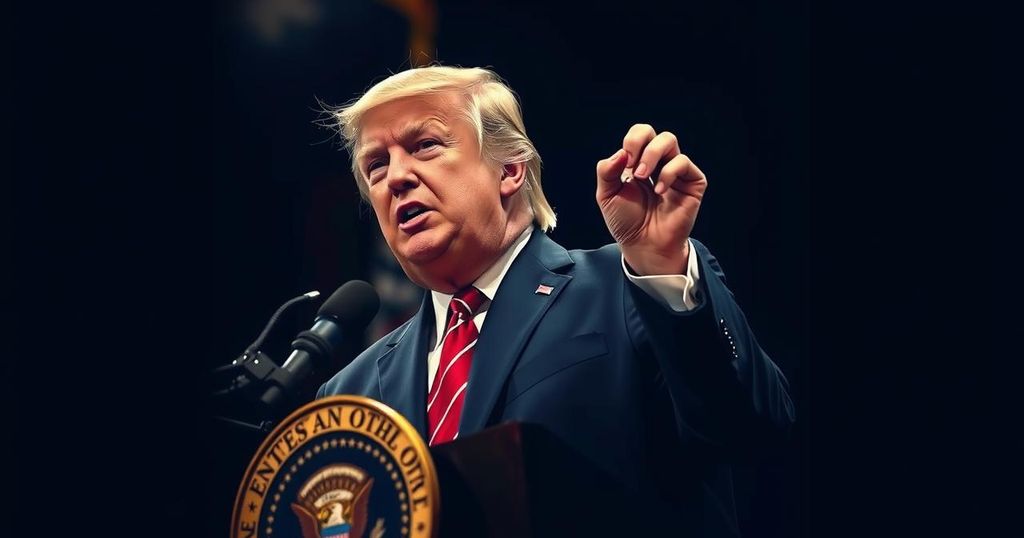Donald Trump has been elected the 47th President of the United States, winning at least 277 Electoral College votes over Vice President Kamala Harris. His victory, characterized by significant voter anger and economic concerns, has raised questions about future U.S. foreign and domestic policies, particularly regarding geopolitical tensions and immigration. Experts warn of a tumultuous era ahead as Trump establishes his agenda.
Donald Trump has officially been elected as the 47th President of the United States, securing at least 277 Electoral College votes according to The Associated Press. This victory was declared early Wednesday, marking his return to the White House after his previous defeat in 2020. Trump triumphed over Vice President Kamala Harris, winning key battleground states such as Wisconsin, Georgia, North Carolina, and Pennsylvania, to achieve a decisive electoral victory. The outcome has generated varied international reactions and has intensified concerns regarding global geopolitical stability amid existing tensions. Trump’s campaign capitalized on public anger and resentment tied to economic issues, including inflation and perceived failures in foreign policy, notably regarding support for Ukraine and ongoing strife in Gaza and Lebanon. His approach resonated with a polarized electorate, allowing him to exploit frustrations that had been festering for years. In his victory speech, Trump asserted he has gained “an unprecedented and powerful mandate.” Analysts suggest this sentiment reflected broader national anxieties rooted in longstanding societal traumas, including those from the 9/11 attacks and the financial crash of 2008-2009. Scott Lucas from the University of Dublin highlighted that this persistent discontent within the political system facilitated Trump’s success. As President, Trump will confront significant geopolitical challenges, and his promised swift resolutions, such as ending the Ukraine conflict in a day, raise concerns among NATO allies and Ukraine regarding possible compromises affecting regional stability. Additionally, Israeli Prime Minister Benjamin Netanyahu welcomed Trump’s return, signaling expectations for a robust alliance between the United States and Israel, as well as a confrontational stance against Iran. Domestically, Trump’s supporters anticipate a shift towards aggressive policies that include a drastic immigration agenda and actions against perceived political adversaries. However, this trajectory may lead to escalating tensions both in the U.S. and abroad, as outlined by experts forecasting a turbulent period under Trump’s administration. The ramifications of his leadership style and policies are anticipated to herald a profoundly transformative and potentially perilous era in both domestic and international contexts.
The recent election results indicating Donald Trump’s victory as the 47th President of the United States have significant implications for both domestic and international landscapes. This election was marked by heightened emotions and expectations stemming from the previous administration and ongoing geopolitical crises. Trump’s approach has often appealed to a specific voter base fueled by frustrations over economic conditions and dissatisfaction with the current government’s foreign policies. Expert analysis suggests that Trump’s policies may disrupt existing international alliances and provoke reactions from various global actors, reshaping multiple geopolitical dynamics.
In conclusion, Donald Trump’s election as the 47th U.S. President represents a pivotal moment in American politics, echoing deep societal frustrations and dissatisfaction. His commitment to aggressive policies domestically and nationalistic strategies abroad may lead to significant changes in both the political landscape and U.S. relationships globally. As he takes office, the challenges ahead will likely test the resilience of both national and international policies, raising concerns about stability and coherence in U.S. governance.
Original Source: www.aljazeera.com






